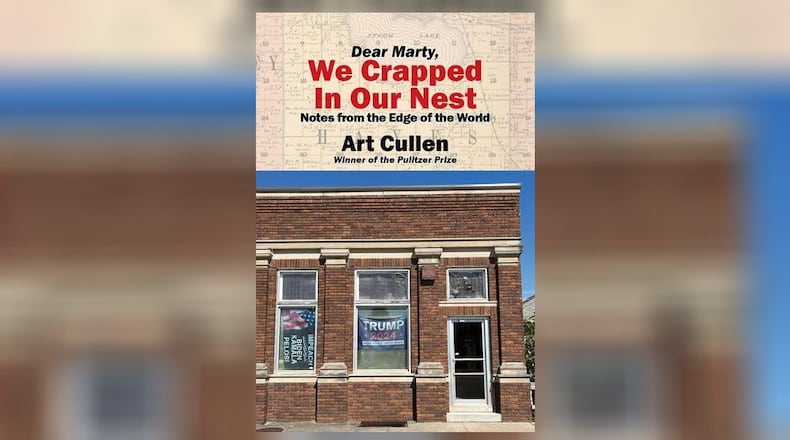They keep producing bumper crops; with markets in turmoil is this a prudent course for midwestern farmers to remain on? Art Cullen doesn’t think so. Cullen just published a collection of essays that takes a hard look at corn/soybean farming in the Midwest.
Cullen knows how these farms once were and how they are now. Over the last 50 years he has observed many changes in the ways they operate. For one thing, they have gotten larger.
According to Cullen, farmers in the region he calls the Three I’s, Iowa, Illinois and Indiana, are so dependent on applying chemicals to their fields it is creating an environmental disaster. Farmers till and plant every possible inch.
The changing climate is impacting land, rains have gotten heavier while the soil along with massive quantities of fertilizer runs off into Iowa rivers, now some of the most polluted watercourses in the nation. That has created an enormous dead zone in the Gulf Of Mexico.
Cullen believes it doesn’t have to be this way, that 60% of Iowa farmers would change their methods if their out of state landlords would approve of them doing so; by setting aside land along waterways to inhibit runoff.
Iowa grows massive quantities of corn and soybeans. It produces lots of pork. Here’s where Cullen’s reporting gets truly surprising. There are millions of hogs in Iowa’s containment facilities. A lot of that pork gets processed by immigrant labor forces in Storm Lake where Cullen lives.
He explains what happens to much of that pork. Guess where it goes? Did you guess China? You are right. Now how is it possible that China still consumes all this Iowa pork while spurning US soybeans? The Chinese purchase soybeans from other places like Brazil and Argentina.
Argentina — President Trump is giving that country $20 billion. This Argentina business must annoy soybean farmers? Trump will no doubt be giving farm interests even more money, like $50 billion.
How do the Chinese keep consuming all that Iowa pork? According to Cullen, the Chinese own many of those porkers from piglet to pork chop because in 2013 the Chinese bought Smithfield, the largest US pork producer.
Cullen states that Iowa is run by the farm lobby. In Iowa they want to prevent the Chinese from buying up Iowa farmland. Cullen wonders why the Chinese would bother with doing that since they already own all that pork production. He says the main thing Iowa has to show for it is all that manure those hogs create.
Oh, and ICE hasn’t been cracking down on all those immigrant meat packers in Iowa — cutting off that meat supply might finally annoy some consumers a bit too much.
Vick Mickunas of Yellow Springs interviews authors every Saturday at 7 a.m. and on Sundays at 10:30 a.m. on WYSO-FM (91.3). For more information, visit wyso.org/programs/book-nook. Contact him at vick@vickmickunas.com.
About the Author

